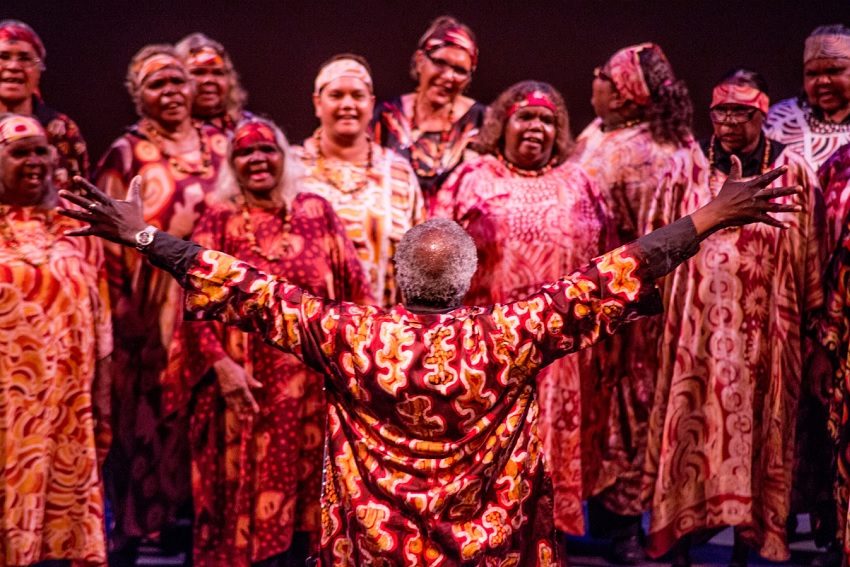Film Review: The Song Keepers

Débuting writer/director Naina Sen’s documentary studies the 2015 trip to Germany undertaken by the Central Australian Aboriginal Women’s Choir, and while there are problems here (and a lack of real tension), the ladies themselves are engaging and their singing is beautiful.
Around 30 women from four generations have been gathering to sing together for years, and there’s much discussion about their chosen pieces being Lutheran hymns brought here over a century ago and translated into Arrarnta and Pitjantjatjara languages. The fact that these are religious songs and will be performed in a series of German churches immediately prompts questions that aren’t quite properly answered. Are the women themselves Lutheran — or otherwise Christian? Do they sing anything other than songs of praise? And what of their lives beyond the rehearsals?
Choirmaster Morris Stuart (from British Guyana) is an amiable figure and laughs a lot, as when he notes that he’s younger than many of the women but they still rather cheekily call him “Sir”, and his infectious enthusiasm compensates for a dull interlude or two. Much is made of the collective stress as the big day of departure looms (especially as some are having trouble being granted passports, because they don’t have official birth certificates), yet they almost all make the trip. And many look very worried indeed, as they’ve never left Australia or been on a plane before.
When they get to Germany and start wowing audiences, Sen slightly frustratingly doesn’t show the choir performing full numbers: we only see excerpts and highlights. It’s still impressive, and yet the second half tends towards the problematic, as certain members start discussing their lives in close-up as corny editing tricks and manipulative music kick in.
This is some of the most simultaneously interesting and iffy material here. Theresa Nipper says that she lived with and was greatly helped by her pastor from the local mission and his family as a young woman when she was rejected by her tribe (and there was nothing untoward or creepy about their generosity); Daphne Puntjina remembers how, years ago, her baby (who had to be killed due to another tribal law) was saved by a kind government worker; and Pantjiti McKenzie says that she basically adheres to more than one faith, a perspective that would surely still upset many traditionalists. And yes, all seem to think that the missions were a good thing, which is hardly what most audiences will be expecting to hear.
Only young Heather Douglas properly shows the power of unity, of forgiveness and of finding your artistic calling. She states that she was a troubled kid but found peace singing and painting, and her smile is so huge and lovely that we certainly believe her.
And why exactly is this a women’s only choir? It seems that men used to be a part of it until the 1970s when they began to move into country music and left the ladies to it, which demonstrates that, contrary to what you might have heard, country music is actually good for something.
Unrated. The Song Keepers is in cinemas from May 3.